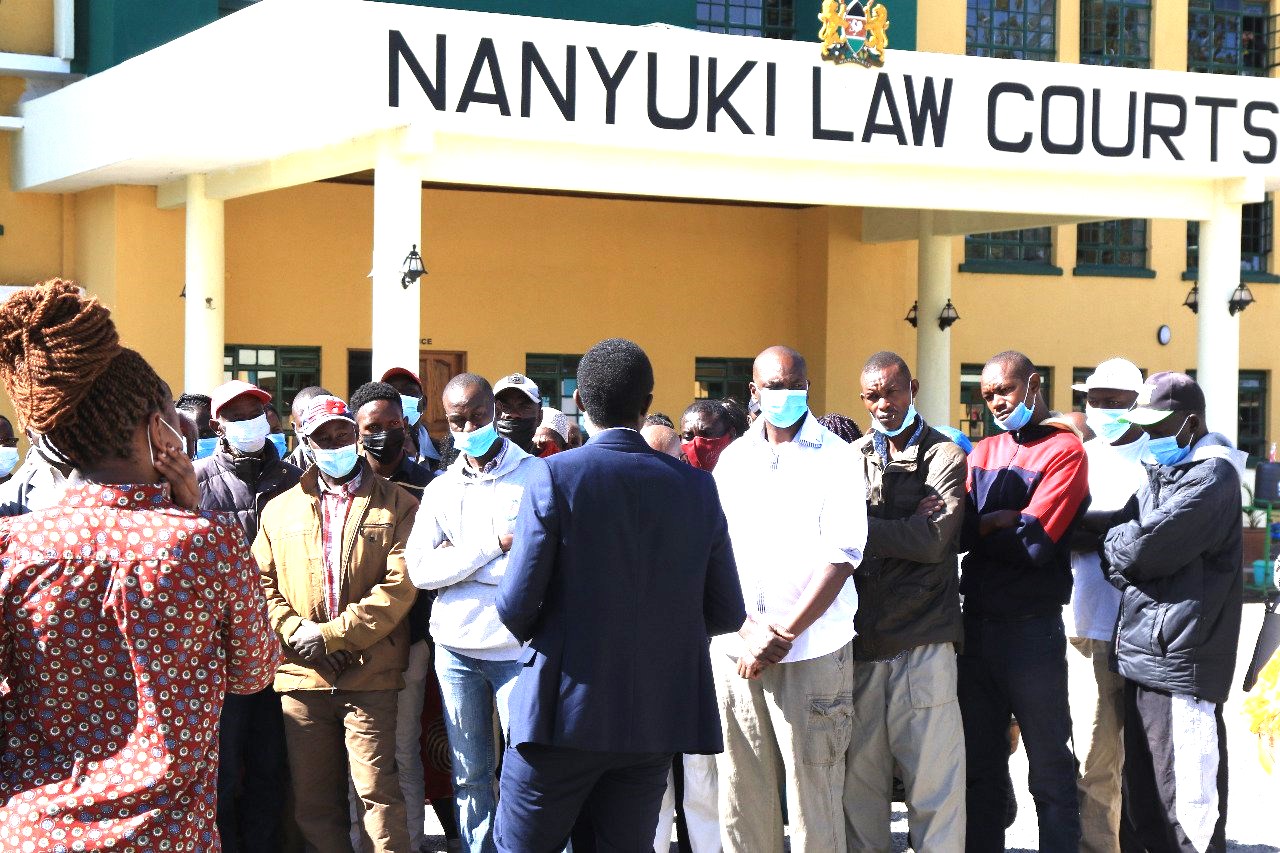
 Some of the Laikipia residents who were affected by the 2021 fire that ravaged Lolldaiga conservancy.
Some of the Laikipia residents who were affected by the 2021 fire that ravaged Lolldaiga conservancy.Joy and relief continues to sweep across villages in
Laikipia East after more than 7,500 residents confirmed receiving compensation
from the British government over the 2021 Lolldaiga Conservancy fire.
The £2.9 million (about Sh500 million) payout, which was wired this week, comes three years after a British soldier’s cooking stove accidentally sparked a blaze that destroyed more than 12,000 acres of the conservancy.
Residents of Nginyii, Mugumo, Mwereri, Muramati and neighbouring villages in Umande Ward on Thursday said the funds had started hitting their accounts, marking the conclusion of a long legal battle.
Their lawyer, Kelvin Kubai, described the settlement as historic, noting that it would not only repair damage but also restore confidence in the community’s relationship with the British Army Training Unit in Kenya (BATUK).
“Each victim will receive between Sh22,500 and Sh2.5 million, depending on the extent of damage suffered. This global settlement covers individual compensation, legal fees, costs and community-based reparations,” he said.
The residents had said the fire caused long-term health problems including respiratory complications and eyesight damage, while also affecting their livestock and farms.
Nahason Kana, one of the beneficiaries, recalled how the blaze engulfed villages in smoke for weeks.
“Our villages were filled with darkness and heavy fumes. It choked life and left our land damaged for decades to come. This compensation is a step forward, though the scars will remain,” Kana said.
The case had drawn in environmental lobby groups such as the African Centre for Corrective and Preventive Action, which argued that toxic chemicals in the smoke even triggered miscarriages in both humans and livestock.
The payout follows years of wrangling. In 2022, the Environment and Lands Court in Nanyuki referred the matter to an intergovernmental liaison committee under the Defence Cooperation Agreement between Kenya and the UK, after BATUK argued that alternative mechanisms should first be explored.
Thursday’s settlement now appears to close that chapter. It also underscores earlier assurances by the UK High Commission, which at the time pledged urgent investigations into the deaths of wild animals, including elephants, linked to the inferno.
Environmental activists, however, say the battle is far from over.
John Maigua, a crusader in Laikipia East, insisted that while money has been paid, authorities must continue monitoring long-term impacts of the fire.
“Youths from our villages risked their lives helping to put out that fire because the soldiers were overwhelmed by strong winds. The environment has not healed, and our voices must not go silent now that money has come,” he said.
The residents hope that the settlement will mark a new chapter in their engagement with BATUK, but they remain watchful to ensure similar incidents never occur again.
Instant analysis
The payout to Laikipia residents marks a rare instance of accountability by a foreign military force operating in Kenya. While the compensation brings relief to victims, it also raises wider questions about the environmental cost of BATUK exercises and the adequacy of existing safeguards. The case underscores the effectiveness of legal action and community mobilisation in compelling redress, but it leaves unresolved the issue of long-term health and ecological damage. Going forward, the challenge will be balancing Kenya’s security cooperation with Britain against the need to protect local communities and fragile ecosystems from similar disasters.










